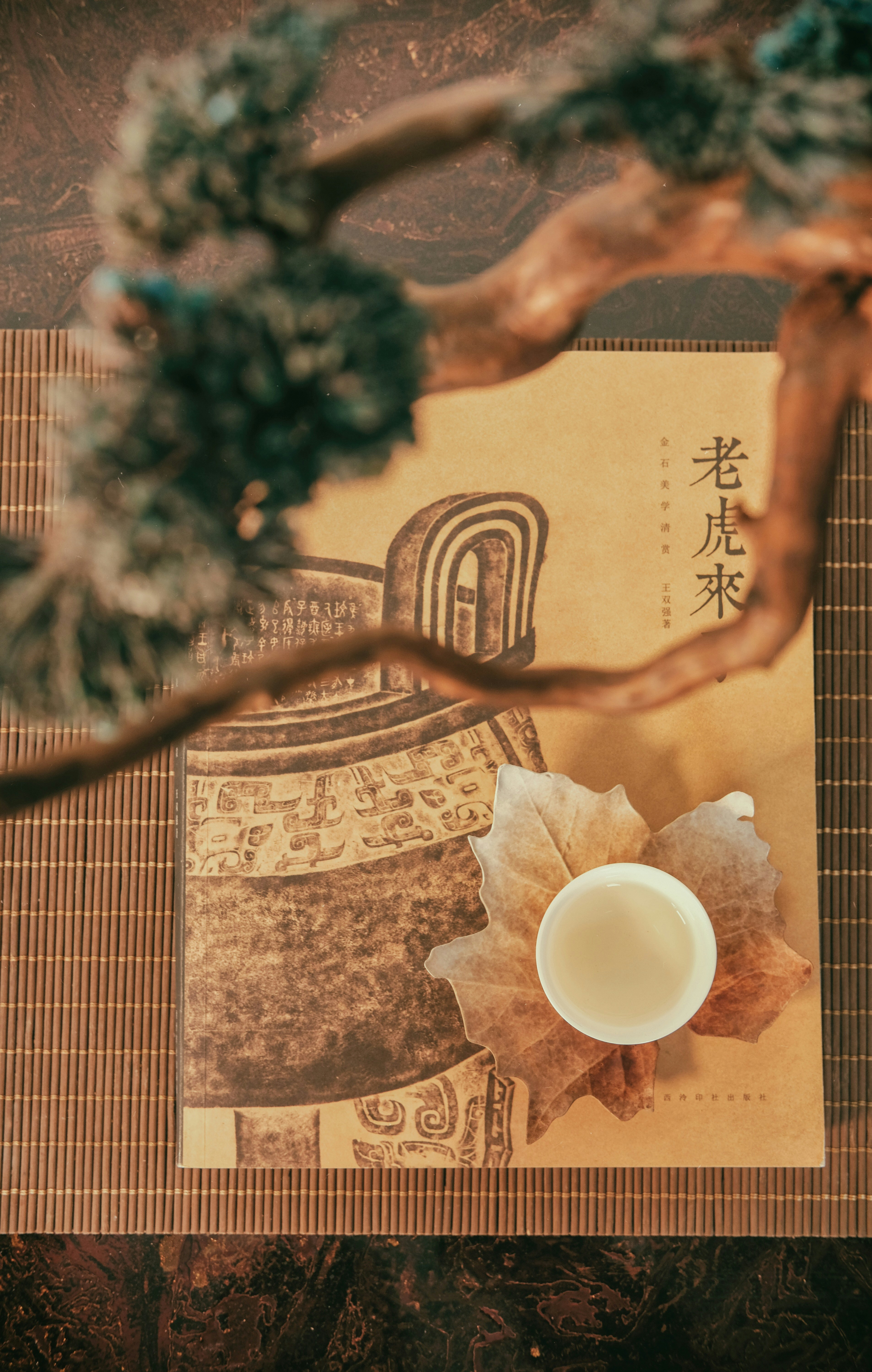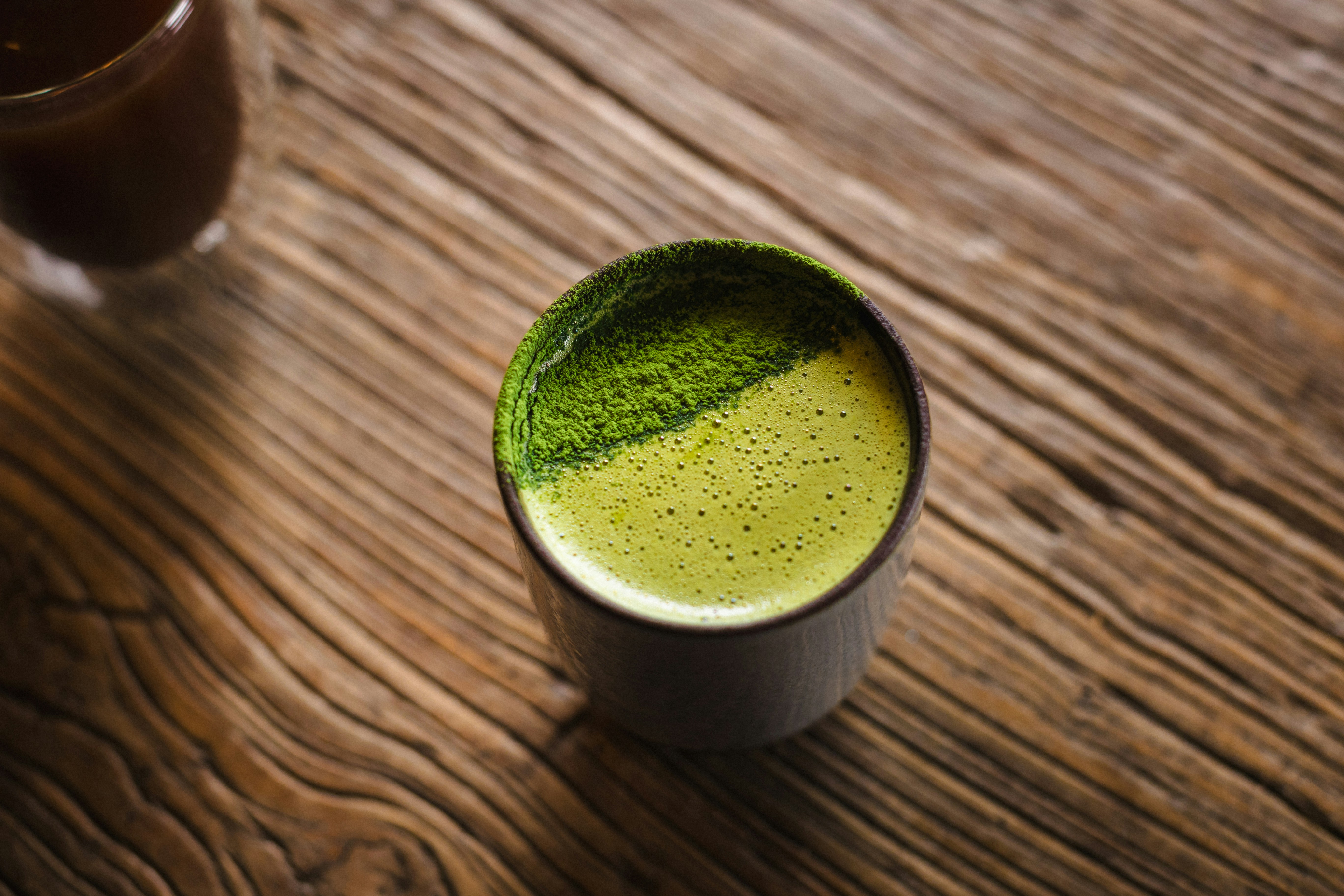Introduction to Tea and Wellness
Tea, one of the most consumed beverages in the world, holds a significant place in various cultures and wellness practices. With roots tracing back thousands of years, tea has evolved beyond a mere drink to become a vital component of holistic health routines globally. From herbal blends to traditional black teas, the diversity of options allows tea enthusiasts to choose according to their preferences and health needs.
The cultural significance of tea is profound, with countries like China, Japan, India, and England each having their own unique tea traditions and rituals. For instance, the Japanese tea ceremony embodies mindfulness and tranquility, promoting a meditative approach to drinking tea. In contrast, in India, chai is more than just a beverage; it is a social connector, often shared among friends and family, fostering a sense of community. Through these various practices, tea has been integrated into health and wellness rituals, highlighting its role as more than just a refreshment.
Incorporating tea into a daily wellness routine provides numerous benefits that contribute to overall well-being. The compounds found in tea, particularly antioxidants, are believed to aid in reducing inflammation, enhancing metabolism, and supporting heart health. Additionally, certain herbal teas, such as chamomile and peppermint, can promote relaxation and aid in digestion, making them suitable choices for stress relief.
Furthermore, the ritual of preparing and consuming tea encourages a mindful moment in our often hectic lives. This pause can serve as a form of self-care, encouraging individuals to take a break and focus on their well-being. As we delve deeper into the multifaceted advantages of tea, it becomes clear that its integration into our wellness practices is not only beneficial but also culturally enriching.
The History of Tea in Wellness Practices
Tea has long been revered as more than just a beverage; it is deeply embedded in the wellness practices of various cultures around the globe. Its origins can be traced back to ancient China, where tea was first documented in the 2737 BCE. The Chinese regarded tea not only for its invigorating properties but also for its medicinal benefits. It became an integral part of traditional Chinese medicine, believed to aid in digestion and boost the immune system, thus enhancing overall well-being.
The Chinese tea ceremony, a profound ritual, exemplifies the importance of tea in promoting mental clarity and serenity. This ceremony is a meticulous process that involves the preparation and presentation of tea, focusing on the aesthetic appreciation and meditative aspects of the experience. Participants engage in a moment of mindfulness, allowing them to center themselves and connect with their surroundings, which is vital for mental wellness.
Similarly, in Japan, the art of matcha is celebrated for its health-promoting qualities. The Japanese tea ceremony, known as ‘Chanoyu’, emphasizes harmony, respect, purity, and tranquility. Using powdered green tea, matcha contains a high concentration of antioxidants and L-theanine, an amino acid that promotes relaxation without drowsiness. This unique blend supports both mental lucidity and emotional balance, making matcha a prominent force in the realm of wellness.
Beyond Asia, other cultures have also integrated tea into their health practices. In the UK, for instance, the ritual of afternoon tea serves not only as a social engagement but also as a moment of respite and relaxation amid a busy day. In Morocco, mint tea is enjoyed as a symbol of hospitality and is known for its soothing properties. Across continents, tea has played a significant role in enhancing physical and mental health by offering a moment of calm and reflection within the often chaotic pace of life.
Nutritional Benefits of Tea
Tea is not only a delightful beverage enjoyed around the world but also a rich source of essential nutrients that contribute to overall health and wellness. Various types of tea, including green, black, white, and herbal teas, offer a spectrum of health benefits predominantly due to the presence of antioxidants, vitamins, and minerals. One of the most significant components found in tea is catechins, a type of antioxidant particularly abundant in green tea. These compounds are known for their ability to combat oxidative stress in the body, thereby reducing the risk of chronic diseases.
In addition to catechins, teas also contain flavonoids, which are known to enhance cardiovascular health by improving blood circulation and lowering blood pressure. Black tea, for instance, is high in theaflavins, another group of antioxidants that may help in reducing cholesterol levels. Furthermore, teas are a natural source of vital vitamins. For example, white tea is packed with Vitamin C, which is crucial for strengthening the immune system and promoting skin health. Regular consumption of these teas can significantly contribute to maintaining vitality and resilience against infections.
Moreover, the minerals found in various teas, such as manganese, potassium, and magnesium, play important roles in bodily functions. Manganese supports metabolic functions, while potassium is essential for maintaining healthy blood pressure levels. Magnesium, on the other hand, is known to help alleviate stress and promote relaxation. By incorporating tea into a daily wellness routine, individuals not only enjoy a soothing experience but also gain valuable nutrients that contribute to their overall well-being. The diverse range of tea options ensures that there is a suitable choice for everyone, enhancing the appeal and feasibility of integrating tea into one’s health regimen.
Mental Health and Tea: A Soothing Ritual
The practice of drinking tea has long been associated with various psychological benefits, particularly in promoting mental clarity and emotional balance. These benefits arise from the combination of the act of brewing tea, the sensory experience it provides, and the time dedicated to the ritual itself. In today’s fast-paced world, taking a moment to prepare and savor a cup of tea can serve as a potent form of self-care, allowing individuals to pause and reflect amidst their daily challenges.
Tea contains several natural compounds, such as L-theanine, which has been found to have calming properties. This amino acid promotes relaxation without sedation, helping to reduce stress and anxiety while enhancing focus. Engaging in tea-drinking rituals can therefore mitigate feelings of overwhelm and help cultivate a sense of calm. By setting aside dedicated time for tea, individuals can practice mindfulness, enhancing their connection to the present moment. This mindfulness not only strengthens emotional resilience but also encourages greater awareness of one’s thoughts and feelings.
Moreover, the simple act of brewing tea can be a meditative experience in itself. The sensory engagement involved—watching the leaves unfurl, inhaling the fragrant steam, and experiencing the warmth of the cup—can ground individuals, promoting a deeper state of awareness and relaxation. Incorporating mindfulness techniques, such as deep breathing or focusing on the flavors and aromas of the tea, can enrich this experience, leading to enhanced emotional balance and mental clarity. As individuals engage in this system of self-care, they may find that the soothing ritual of tea becomes an invaluable part of their wellness routine, contributing positively to their overall mental health.
Tea and Its Spiritual Connections
Tea has long been regarded as more than just a beverage; it plays a significant role in various spiritual practices across different cultures. In many traditions, the act of preparing and consuming tea becomes a ritualistic experience, fostering mindfulness and reflection. The simple act of brewing tea can transform into a meditative practice, inviting individuals to slow down and immerse themselves in the moment. This connection between tea and spirituality is not merely anecdotal; it has deep cultural roots in practices such as Chan (Zen) Buddhism, where tea is integral to meditation sessions.
In Zen traditions, tea is associated with the principle of “being present.” The meticulous steps involved in the tea-making process—from selecting the leaves to steeping and serving—encourage a heightened awareness that parallels meditative techniques. Through this process, individuals can cultivate a clearer mind and a stronger connection to their inner selves. Similarly, in Chinese tea ceremonies, the act of sharing tea is viewed as a pathway to cultivate harmony and forgiveness among participants, emphasizing mindfulness within interpersonal relationships.
Additionally, many cultures incorporate tea into their spiritual rituals, using it to symbolize connection with nature and the cosmos. For example, in some Native American tribes, herbal teas are brewed as part of spiritual cleansing ceremonies, believed to enhance one’s spiritual journey and awareness. The serene act of sipping tea can also lead to personal revelations, often serving as a catalyst for self-discovery and introspection. Through engaging in this ritual, individuals may find clarity, gaining deeper insights into their lives and purpose.
Ultimately, tea transcends its role as a mere beverage, inviting practitioners to explore their spiritual landscapes while fostering a deeper understanding of themselves and their connection to the world around them.
Creating the Perfect Cup of Tea: Tips and Techniques
Crafting the perfect cup of tea is an art that contributes significantly to its health benefits. The experience begins with choosing the right type of tea. There are myriad options available, including black, green, white, oolong, and herbal teas, each offering a unique profile of flavors and health advantages. For example, black tea is known for its robust flavor and high caffeine content, while green tea is revered for its antioxidants and gentle energy boost.
Once you have selected your tea, consider the steeping time and water temperature. These factors are crucial, as they can alter the tea’s taste and benefits. Generally, black tea should be steeped for 3 to 5 minutes at a temperature of around 200°F (93°C). Green tea, on the other hand, prefers a more delicate approach; steeping for 2 to 3 minutes at about 175°F (80°C) ensures that its subtle flavors shine through without becoming bitter. Herbal teas usually require boiling water and a longer steeping time of about 5 to 7 minutes to extract all healthful properties.
The quality of water used in brewing is equally important. Using filtered or spring water can enhance the flavor profile of your tea, while hard tap water may introduce unwanted minerals that can overpower the tea’s natural taste. Therefore, investing in good water quality can significantly impact your beverage experience.
For those looking to enhance the flavor profile of their tea, consider adding natural ingredients such as fresh herbs, spices, or citrus fruits. Mint, ginger, and cinnamon can elevate your tea with additional health benefits while also creating a fragrant infusion. Ultimately, achieving the perfect cup of tea requires attention to detail, but the rewards, both in taste and health enhancement, make it a worthwhile endeavor.
Incorporating Tea into Your Daily Routine
Integrating tea into your daily routine can greatly enhance your overall wellness. This beloved beverage not only offers a variety of flavors and health benefits but also serves as a versatile companion throughout the day. One effective strategy is to start your morning with a calming cup of tea, such as green or herbal varieties. These can help awaken your senses and prepare you for the day ahead. The antioxidants found in green tea, for example, can kickstart your metabolism and promote alertness, making it an excellent choice when paired with breakfast.
As the day progresses, consider enjoying a mid-afternoon tea break. This is an ideal time to sip black tea or chai, which contain caffeine but in moderation, helping to provide a gentle boost without the jitters of coffee. Taking this moment to pause and enjoy tea can foster mindfulness, allowing you to recharge mentally and emotionally. Many individuals find that a brief tea-drinking session during work hours enhances productivity, as the warming liquid can provide both comfort and focus.
Evening tea rituals can be equally beneficial, particularly when you opt for caffeine-free herbal options like chamomile or peppermint. These selections not only aid digestion but also promote relaxation, preparing your body for restful sleep. Additionally, incorporating tea into social gatherings can add a unique touch. Serving an assortment of teas during family or friend gatherings encourages moments of connection and conversation.
In essence, by recognizing specific times of day where tea could be integrated, you open doors to health benefits, sensory enjoyment, and social enhancement. Whether it’s morning, mid-afternoon, or evening, there are countless ways to make tea a staple in your wellness routine.
Exploring Different Types of Tea and Their Benefits
Tea is an ancient beverage that has captivated individuals across cultures for centuries, and its diverse varieties can significantly enhance any wellness routine. Among these varieties, green, black, herbal, white, and oolong teas each possess unique characteristics and health benefits that cater to different wellness needs.
Green tea, renowned for its high concentration of antioxidants, particularly catechins, is often celebrated for its potential in boosting metabolism and aiding weight management. Its moderate caffeine content provides a gentle energy lift without the jitters often associated with coffee, making it an excellent choice for those seeking a balanced energy source. Additionally, research suggests that green tea may support heart health and improve brain function, reinforcing its status as a wellness staple.
Black tea, on the other hand, is fully oxidized, giving it a robust flavor and a higher caffeine content compared to its green counterpart. Rich in flavonoids, black tea has been linked to improved gut health and enhanced cardiovascular function. Its wide array of flavors—from malty to astringent—invites individuals to explore different blends, making it a versatile component of any wellness strategy.
Herbal teas, while technically not true teas as they do not stem from the Camellia sinensis plant, offer a plethora of wellness options. Chamomile, for instance, is widely revered for its calming properties, often aiding sleep and relaxation. Meanwhile, peppermint tea can help with digestion and may alleviate headaches, showcasing the wide range of benefits found within herbal infusions.
White tea is the least processed of all tea types, containing a delicate flavor profile and abundant antioxidants. It has been associated with skin health and has the potential to reduce the risk of heart disease. Lastly, oolong tea, a partially oxidized tea, strikes a harmonious balance between black and green tea, offering benefits such as enhanced metabolism and cognitive clarity.
As you venture into the world of teas, consider experimenting with various blends and flavors to discover which varieties resonate best with your personal wellness journey. Each type of tea not only promotes health benefits but also invites mindfulness in your daily routine, making the incorporation of tea into your life a rewarding experience.
Conclusion: Embracing Tea for Holistic Wellness
Incorporating tea into a wellness routine holds numerous benefits that extend beyond mere hydration. The various types of tea, such as green, black, herbal, and oolong, each offer unique properties that can contribute to improved physical health. For instance, green tea is rich in antioxidants, which are essential for combating oxidative stress. Likewise, herbal teas can aid digestion, enhance sleep quality, and reduce stress levels, thereby promoting a well-rounded approach to wellness.
Beyond physical benefits, tea serves as a catalyst for mental well-being. The ritual of preparing and consuming tea encourages mindfulness, allowing individuals to take a moment for themselves amidst busy daily schedules. This mindful practice can help to mitigate anxiety and foster a sense of calm, enabling a deeper connection between the body and mind. Additionally, different tea varieties contain compounds that may improve cognitive functions, further supporting mental clarity and focus.
Moreover, the social aspect of enjoying tea with friends or family cannot be overlooked. Sharing a pot of tea creates an opportunity for meaningful conversations and enhances relationships, contributing positively to emotional health. This engagement with others fosters a sense of community, which is vital for overall well-being.
Thus, embracing tea as a holistic practice nurtures not only the body but also the mind and spirit. It is an invitation to explore the rich tapestry of flavors and traditions that tea encompasses. Readers are encouraged to discover their personal preferences within the vast world of tea and to consider its potential impact on their overall well-being. By integrating tea into wellness routines, individuals can unlock a deeper understanding of themselves while enhancing their health in multifaceted ways.








Leave a Reply